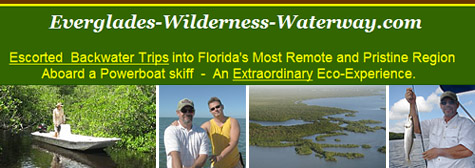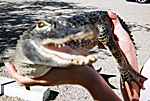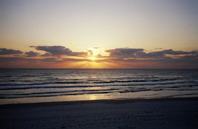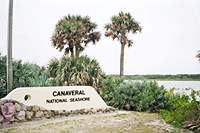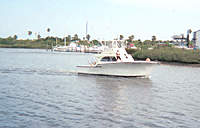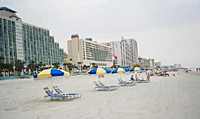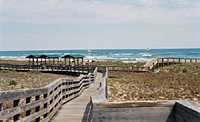

Ten Thousand Islands Florida .com is your premier online Visitor Guide to the Everglades Showcasing hundreds of exciting attractions, hotels, restaurants, real estate & vacation rentals in the Everglades Region !
A member of the www.FloridaVisitorGuides.com network of travel sites









Ten
Thousand Islands, Florida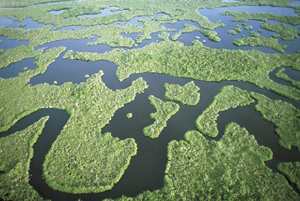
The
Ten Thousand Islands is the coastal area in the Everglades National Park
where mangrove islands and shallow creeks make a wilderness maze.
The 'islands' are a labyrinth of water and mangroves. Some of the islands
are landmasses called keys but many are clumps of mangrove trees rising
out of coral reefs, oyster beds, and sandy shoals. The area lies southeast
of Naples and northwest of the Everglades National Park. The many islands
form a transition from the freshwater marsh of the "river of grass" to
the open salt water of the Gulf of Mexico. These islands are an import
filtration area for the fragile eco system in the area.
Marco Island is the largest of Florida's Ten Thousand Islands, located
on the Gulf of Mexico in Southwest Florida.
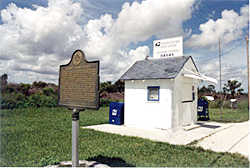 The
post office at Ochopee, Florida, our nation's smallest, is a regular stop
on the south Florida tourist circuit.
The
post office at Ochopee, Florida, our nation's smallest, is a regular stop
on the south Florida tourist circuit.
The
Ten Thousand Islands Refuge
The
Ten Thousand Islands Refuge, established in December 1996, is located
20 miles southeast of Naples near Goodland, Florida. It emcompasses 35,000
acres in the lower end of the Fakahatchee and Picayune Strands of Big
Cypress Swamp. Approximately two thirds of the refuge is mangrove forest
- It has over eight thousand acres of mangrove making it one of the largest
North American estuaries. The remainder of the acerage is divided between
16,000 acres marine water, 11,000 acres freshwater marshland and other
habitat. The refuge is used year round by manatees and sea turtles and
has large concentrations of endangered wading birds including wood storks,
water birds, shorebirds. Roughly 200 species of fish have been documented
in the area and much of the sea grass beds and mangrove bottoms serve
as vital nursery areas for marine fish
|
|
|
The
Everglades Wilderness Waterway extends 99 miles between Everglades
City to the West and Flamingo to the East where the vast saw grass
marsh of the Everglades meets the sea . An unspoiled realm of mangroves,
hidden coves, and isles with sandy beaches abounds with wildlife.
This remote wilderness waterway is yours to explore. Back Country
Marina provides day trips or overnight trips utilizing the camp
sites along the Everglades Wilderness Waterway. |
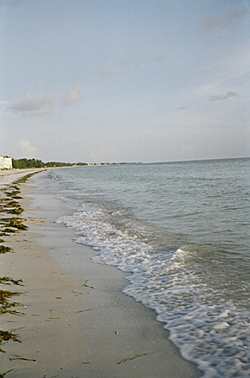
Some
of the species located here are threatened and endangered species including
West Indian manatee, bald eagle, peregrine falcon, wood stork, and the
Atlantic loggerhead, green, and Kemp's Ridley sea turtles .
Public Use Opportunities:
Fishing.
Hunting.
Wildlife Observation.
Photography.
Wildlife Viewing Trail.
Camping.
The
refuge is located approximately 20 miles southeast of Naples, Florida,
on the south side of Highway 41. The wester boundary lies along county
road 92. The Gulf of Mexico borders the southern boundary, and the eastern
boundary lies just west of Everglades National Park, and FAKA Union Canal
in the northern portion of that boundary.
The refuge is largely wetlands, a boat is the best means to get around
the refuge. Boating is a must for fantastic sportfishing in the backwaters.
Boat ramps are located in Goodland, Florida and Port of the Islands Resort
on the Faka Union Canal. Commercial boat operators (tour guides) are available
in these areas too.
Our
network of Florida websites
give you everything you need to know to plan your trip online when visiting
exciting Everglades City .. It's all right here at your fingertips...with
just a click of your mouse!
Looking for a dock/boat slip in the Everglades?
Click here for more information
|
EVERGLADES FISHING CHARTERS & GUIDES |
||
|
South
West
Florida Fishing Guides.com click here Enjoy a thrilling day on the water, fishing along Florida's Gulf Coast with one of our expert fishing guides. click here 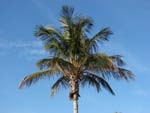 Florida Back Country Fishing Light tackle or flyfishing for tarpon, redfish, snook and more. Fishing the flats & backcountry near Fort Myers, Sanibel, Captiva, Naples and Pine Island. click here |
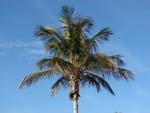
South Florida Fishing Guides.com Guided Fishing in the Upper Florida Keys, Everglades National Park or the Biscayne Bay. Use light tackle or fly fish for bonefish, redfish, snook, tarpon and more. click here 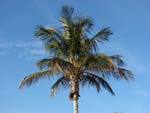 Everglades Fishing Charter.com click here |
Florida
Tarpon Fishing Guides.com
Florida Tarpon Guaranteed! Catch gaint tarpon along Florida's beautiful west coast. click here  Florida Fly Fishing Guides.com click here 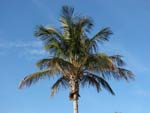 Florida Vacation Rentals click here |
Virtual
Slideshows!
Take a virtual tour of famous Florida landmarks and popular destinations
throughout the Sunshine State!
We invite you to enjoy our exclusive virtual slideshows and stunning color
photography of Florida's beautiful scenery. If you're visiting us from
the colder northern climates, sit back and enjoy the sun & surf !
Everglades
National Park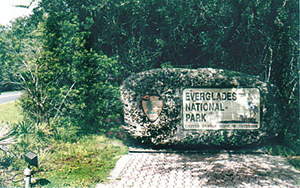
Everglades
National Park is a wonderful place to explore wilderness, waterways, and
more. Everglades National Park has been designated a World Heritage Site,
an International Biosphere Reserve, and a Wetland of International Importance.
Established in 1947, the Everglades National Park covers 4,000
sq mi in southern Florida extending from Lake Okeechobee southward to
Florida Bay.
Federal Land comprises 1,398,617.13 acres, Non-Federal Land - 461.13 with
the gross total area acres of 1,399,078.26. The Everglades
is a unique ecosystem and is completely dependant upon water flow, making
it one of the largest and most productive estuaries in the world.
The Everglades is a massive ecosystem with over 600 species of birds and
animals and thousands of plant varieties and home to several of the world's
endangered species.
click here for more information
on The Everglades National Park.
|
FLY
FISHING GUIDE
|
||
|
Florida
Fly Fishing Guides.com
click here Flats Fishing Guide - Specializing in flats and fly saltwater fishing. Catch Redfish, Cobia, Snook, Trout, and more using flies, live bait, and tackle. click here |
||
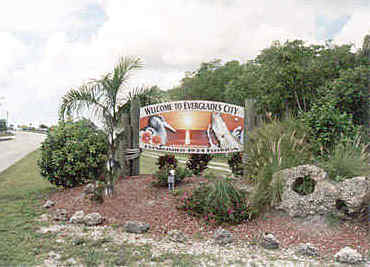 Everglades
City Everglades
City is a mile long mangrove island with crab houses, shops, restaurants,
motels, marinas, museums, an airport, canoe & kayak guided adventures,
aerotours, boat tours, airboat rides, canoe/kayak/bicycle rentals and
nice walking paths. It is known
as 'the fishing and stone crab capital of Southwest Florida' and is one
end of the Wilderness Waterway, the Everglades backcountry route linking
Everglades City to Flamingo.
Everglades
City Everglades
City is a mile long mangrove island with crab houses, shops, restaurants,
motels, marinas, museums, an airport, canoe & kayak guided adventures,
aerotours, boat tours, airboat rides, canoe/kayak/bicycle rentals and
nice walking paths. It is known
as 'the fishing and stone crab capital of Southwest Florida' and is one
end of the Wilderness Waterway, the Everglades backcountry route linking
Everglades City to Flamingo.
Click
here for more information on Everglades City.
|
COMMON EVERGLADES GAME FISH |
||
|
Snook |
Tarpon |
Redfish |
| Description:
distinct lateral line; high, divided dorsal fin; sloping forehead;
large mouth, protruding lower jaw; grows much larger than other snooks;
pelvic fin yellow. Where found: from central Florida and South
Texas south, usually INSHORE in coastal and brackish waters, along
mangrove shorelines, seawalls, and bridges; also on reefs and pilings
nearshore. Size: most catches 5 to 8 pounds. *Florida Record: 44 lbs., 3 ozs. |
Description:
last ray of dorsal fin extended into long filament; one dorsal fin;
back dark blue to green or greenish black, shading into bright silver
on the sides; may be brownish gold in estuarien waters; huge scales;
mouth large and points upward. Where found: primarily INSHORE fish, although adult fish spawn OFFSHORE where the ribbon-like larval stage of the fish can be found. Size: most angler catchs 40 to 50 pounds. *Florida Record: 243 lbs. |
Description:
chin without barbels; copper bronze body, lighter shade in clear waters;
one to many spots at base of tail (rarely no spots); mouth horizontal
and openng downward; scales large. Where found: juveniles are
an INSHORE fish, migrating out of the estuaries at about 30 inches
(4 years) and joining the spawning population OFFSHORE. Size: one of 27 inches weighs about 8 pounds. *Florida Record: 51 lbs., 8 ozs. |
|
Permit
|
Sea Trout
|
Bonefish
|
| Description:
color gray, dark or iridescent blue above, shading to silvery sides,
in dark waters showing golden tints around breast; small permit have
teeth on tongue (none on pompano); no scutes; dorsal fin insertion
directly above that of the anal fin; 17 to 21 soft anal rays. Where found: OFFSHORE on wrecks and debris, INSHORE on grass flats, sand flats, and in channels; most abundant in south Florida, with smaller specimens from every coastal county. Size: common to 25 pounds. *Florida Record: 51 lbs., 8 ozs. |
Description:
dark gray or green above, with sky blue tinges shading to silvery
and white below; numerous distinct round black spots on back, extending
to the dorsal fins and tail; black margin on posterior of tail; no
barbels; no scales on the soft dorsal fin; one or two prominent canine
teeth usually present at tip of upper jaw. Where found: INSHORE and/or NEARSHORE over grass, sand and sandy bottoms; move into slow-moving or still, deep waters in cold weather. Size: common to 4 pounds on west coast, larger on east coast. *Florida Record: 15 lbs., 6 ozs. |
Description:
silvery color with bluish or greenish back; slender, round body; snout
long, conical, aiming downward and overhanging lower jaw; dark streaks
between scales on upper half of body and faint crossbands extending
down to lateral line; extremities of dorsal and caudal fins shaded
with black. Similar Fish: ladyfish, Elops saurus Where found: primarily INSHORE fish inhabiting shallows of the Florida Keys; found in shallows often less than 1 foot deep, usually over lush grass flats, occasionally over white sand. Size: 3 to 5 pounds. *Florida Record: 15 lbs., 6 ozs. |
|
Jack
. |
Black
Drum
|
Grouper
|
| Description:
color bluish-green to greenish-gold back and silvery or yellowish
belly; soft dorsal and anal fins almost identical in size; prominent
black spot on operculum (gill cover); black spot at the base of each
pectoral fin; no scales on throat. Where found: common in both INSHORE waters and the open sea. Size: usually 3 to 5 pounds. *Florida Record: 51 lbs |
Description:
high arched back; 10 to 14 pairs of chin barbels; gray or black colored
body in adults; young have 4 to 6 vertical bars; has cobblestone-like
teeth capable of crushing oysters; scales large. Where found: INSHORE fish common to bays and lagoons; bottom dweller often found around oyster beds; also OFFSHORE. Size: common to 30 pounds. *Florida Record: 93 lbs. |
Description:
olive or gray body coloration with black blotches and brassy spots;
gently rounded preopercle. Similar Fish: gag M. microlepis; yellowfin
grouper, M. venenosa. Where found: OFFSHORE species; adults associated with rocky bottoms, reef, and drop off walls in water over 60 feet deep; young may occur INSHORE in shallow water. Size: common to 40 pounds, may attain weights exceeding 100 pounds. |
 South West Florida Real Estate click here View Waterfront Properties throughout Southwest Florida including Fort Myers, Naples, Marco Island, Bonita Springs, Sanibel Island, Captiva, Cape Coral & the Everglades. View 1000's of listings and photos. click here  Real Estate South Florida click here Condos South Florida click here |
Moving to South Florida Paradise!
South
Florida and Southwest
Florida offers gorgeous beaches and a tropical lifestyle!
With
less severe winters than many parts of the country you can expect to spend
less on winter clothing and heating fuel - making the cost of living more
reasonable. South Florida is one of the fastest-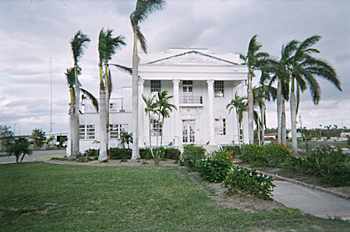 growing
areas in the state and a great business environment. South Florida's skilled
workforce and advanced infrastructure have helped the growth of more than
600 technology companies and many Fortune 500 businesses.There is a great
transportation network, including a recent $438 million expansion and
upgrade at Southwest Florida International Airport. Historic and cultural
amenities range from Seminole Indian reservations to Thomas Edison's home,
from hundreds of local art galleries to the region's many performing arts
centers making moving to this region in Florida very desirable. The Southwest
Florida real estate market is in full swing with golf communities, condos,
waterfront homes and all types property. For more information on Florida
relocation click here
growing
areas in the state and a great business environment. South Florida's skilled
workforce and advanced infrastructure have helped the growth of more than
600 technology companies and many Fortune 500 businesses.There is a great
transportation network, including a recent $438 million expansion and
upgrade at Southwest Florida International Airport. Historic and cultural
amenities range from Seminole Indian reservations to Thomas Edison's home,
from hundreds of local art galleries to the region's many performing arts
centers making moving to this region in Florida very desirable. The Southwest
Florida real estate market is in full swing with golf communities, condos,
waterfront homes and all types property. For more information on Florida
relocation click here
|
GULF OF MEXICO FISHING CHARTERS & GUIDES |
||
|
Gulf
of Mexico Deep Sea Fishing.com
Rod-bending, reel-screaming fun awaits on your offshore Gulf fishing charter. click here Gulf Coast Fishing.org click here Florida Vacation Rentals click here Florida Tarpon Fishing Guide.com click here |
Gulf Coast Fishing Charter.com Enjoy the fishing trip of a lifetime in the Gulf of Mexico! click here Gulf of Mexico Cruises.com click here Sport Fishing Guides.com click here |
Florida
Deep Sea Fishing Charters
Deep-sea fishing for red snapper, kingfish, ling, wahoo, dorado, shark, amberjack, barracuda, bonito and more! click here Florida Tarpon Fishing Guides.com click here Florida Gulf Coast Hotels.com click here |
|
FLORIDA VACATION RENTALS
|
||
|
Great
deals on vacation homes and condos!
Search by date, price, location. Pictures & full descriptions! Click here |
